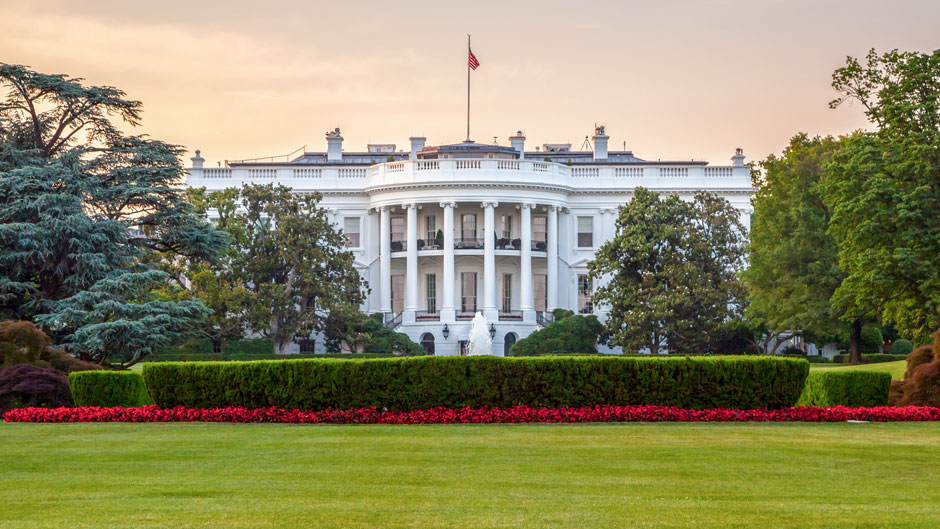A week after Attorney General William Barr released a four-page summary that details the main findings of special counsel Robert Mueller’s two-year investigation into Russian interference in the 2016 presidential election, some unanswered questions remain.
Chief among them is whether the full report will ever be released.
 In his letter, Barr states: “[T]he investigation did not establish that members of the Trump Campaign conspired or coordinated with the Russian government in its election interference activities.”
In his letter, Barr states: “[T]he investigation did not establish that members of the Trump Campaign conspired or coordinated with the Russian government in its election interference activities.”
A Justice Department official has said that a version of the report will be available for Congress and the public within weeks, an indication that Barr will miss House Democrats’ April 2 deadline to provide Congress the full report.
News@theU asked Frances R. Hill, professor of law and Dean’s Distinguished Scholar for the Profession at the University of Miami School of Law, to weigh in on some of the key issues surrounding the Mueller report and Attorney General Barr’s letter.
How important is it that the full Mueller report be released publicly?
It is very important that the full Mueller report, together with the underlying evidence on which it was based, be released to the public as soon as reasonably possible. A four-page letter by Attorney General William Barr (the “Barr Letter”) is not a reasonable substitute for access to the actual Mueller report. It should be noted that some material, particularly highly classified national security evidence, may never be released. Material relating to the many ongoing investigations that appear to have been sent to various federal prosecutors in New York, Virginia, the District of Columbia, and perhaps other jurisdictions as well, will not be released while these investigations are in progress. Grand jury material can be unsealed and made available only with a decision by the chief judge of each United States District Court that unsealing material is in the public interest. The president, who has said he “wouldn’t mind” if the full Mueller report were released, might change his mind and attempt to assert executive privilege once he and his advisers become fully aware of what is contained in the Mueller report. Any such effort to assert executive privilege would involve extensive and lengthy litigation ending only with U.S. Supreme Court decisions.
What steps can be taken to persuade or compel the Department of Justice to release the full Mueller report and the underlying evidence?
Chairs of the relevant committees in the House of Representatives have already sent a letter to Attorney General Barr demanding that he send them a full, unredacted copy of the Mueller report together with the underlying documents by Monday, April 2. This does not appear likely to happen. Whether this letter opens productive negotiations over this matter remains to be seen. The committee chairs could well seek to subpoena the Mueller report if the attorney general tries to stonewall or even to slow-walk the process. Seeking to persuade a court to issue a subpoena is, in some ways, the ultimate form of stonewalling because the issue is likely to reach the Supreme Court, and it is not at all clear that the Supreme Court would deal with this on an expedited basis or how it would decide a particular claim of executive privilege.
The public may have some political leverage in this matter. With an election looming in November 2020, the political costs to the president of not releasing the Mueller report may become greater than the costs of releasing the report. It remains unclear how voters will view this issue over time and it remains unclear how the president will weigh the political costs and benefits in terms of his re-election in 2020.
Why has the Barr Letter become so controversial in such a short period of time?
The Barr Letter has become controversial partly because it provides virtually no information about the Mueller report—its length, the topics addressed, the types of evidence referenced, the legal issues identified, or even the precise terms of the instructions to the special counsel, which remain classified. The Barr Letter provides very little information about what the special counsel decided and on what grounds he decided particular issues. The attorney general offers no insight into how he made particular decisions about what to include in his letter. It does appear, however, that the attorney general relied on his personal view that a president has unlimited authority to control investigations of matters relating to his own conduct, which became very controversial during his confirmation hearings before the Senate. The idea that a president is above the law is not widely shared.
The Barr Letter quotes the Mueller Report as saying with respect to the obstruction of justice issue that “while this report does not conclude that the president committed a crime, it also does not exonerate him.” If this is a correct quotation from the Mueller report, how can both things be true?
It is possible that the available evidence, including the publicly available evidence based on the president’s public statements while he was a candidate and since he has been in office, does not satisfy every element of obstruction of justice as a federal crime at a level of certainty that would be required to indict a sitting president but, at the same time, be sufficient to raise questions relevant to the president’s behavior, especially his behavior while in office. Whether this possibility is relevant to the particular obstruction of justice issue investigated by the special prosecutor can only be understood if the full Mueller report, together with the underlying evidence, is made available to the public.
Does the language quoted from the Mueller Report and included in the Barr Letter leave the conclusion relating to the obstruction of justice issue up to Attorney General William Barr?
Attorney General Barr made no claim at all about the authority under which he was acting. The language in the Barr Letter carefully skirts the issue of why the attorney general included his conclusion in his very short letter to Congress. The Barr Letter states that “[t]he Special Counsel’s decision to describe the facts of his obstruction investigation without reaching any legal conclusion leaves it to the Attorney General to determine whether the conduct described in the report constitutes a crime.” This language provides no indication of what authority the attorney general might claim for his action. Simply claiming that he could act because he is the attorney general might well not be entirely persuasive.
Why didn’t Mueller interview the president in person instead of relying on written answers?
This is one of the important questions that might or might not be explained in the Mueller report. One can speculate that the Department of Justice policy that a sitting president cannot be indicted may have made the issue of an interview or grand jury testimony less urgent because the ultimate permissible action would not have included an indictment of the sitting president. This is only speculation. The next step should be to determine whether the Mueller report and the underlying evidence provide insight into this question.
What is the most unexpected topic addressed in the Barr Letter?
The Barr Letter devotes an entire section of the letter to what it labels as “Russian Interference in the 2016 U.S. Presidential Election.” The president has never admitted this, stating that he believes President Putin when he denies this and never authorizing a substantial, well-coordinated effort to address such interference in future elections. The Barr Letter makes it difficult to deny Russian interference. At the same time, the Barr Letter carefully distances the Trump campaign from any involvement in this Russian interference.
The Trump administration is calling Attorney General Barr’s letter regarding the principal findings of the Mueller report a political victory. How will it impact the 2020 election?
The Barr Letter does seem like a political victory for the president, but no one can say whether the Mueller report will be a victory for the president or whether it will present a more complex narrative of both the obstruction of justice issue and the conspiracy issue. Whatever the Mueller report says, it is likely that the president will make this claim that he has been “fully exonerated” the core theme of his 2020 campaign. No one can predict what factors will shape the voters’ decision.

